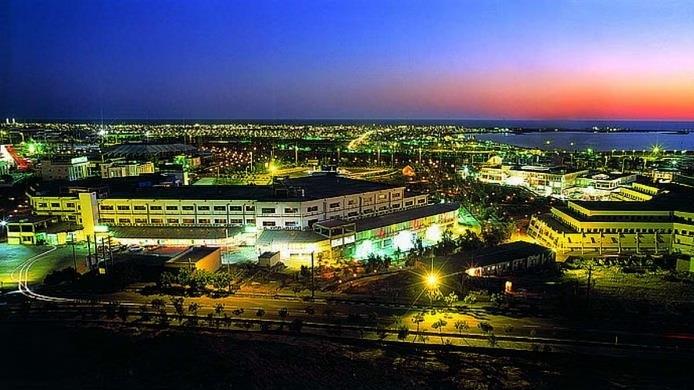India's Chabahar Bet Hit As US Ends Sanctions Waiver
Chabahar is located on the Makran coast next to the Gulf of Oman and at the mouth of the Strait of Hormuz.
New Delhi: In a move that threatens to upend India's strategic interests in Iran and strain its already tense relations with Washington, the United States has revoked the sanctions waiverfor Iran's Chabahar port project, effective September 29.
The exemption, first granted in 2018, had allowed India to develop and operate the Shahid Beheshti terminal at Chabahar, seen as a vital gateway to Afghanistan and Central Asia. The White House said the waiver's withdrawal was in line with the Trump administration's“maximum pressure” policy on Iran.
“Any person or company engaged in the port's operation could now be exposed to sanctions,” State Department spokesperson Thomas Pigott confirmed on Thursday.
India's High-Stakes Investment at Risk
India has already invested heavily in the project, supplying equipment worth $25 million, routing humanitarian aid through the port, and, in May 2024, signing a 10-year agreementto operate it. Under the deal, India pledged $120 million in investmentalong with a $250 million credit line for infrastructure upgrades.
The port was widely seen as India's strategic counter to Pakistan's Gwadar port, operated by China, and as a linchpin in the International North-South Transport Corridor (INSTC)linking India to Central Asia, Russia, and Europe.
Officials in New Delhi had also touted the waiver as recognition of the port's importance in stabilizing Afghanistan and supporting humanitarian shipments.
Reacting sharply, Tehran criticized Washington's decision. Iranian officials described America's reliance on sanctions as an“addiction” that has persisted since the 1979 revolution, accusing the US of weaponizing economic measures under shifting pretexts.
Chabahar has long been one of Iran's flagship projects for regional connectivity, and Tehran had welcomed India's investment as a counterbalance to China's growing footprint in the region.

Legal Disclaimer:
MENAFN provides the
information “as is” without warranty of any kind. We do not accept
any responsibility or liability for the accuracy, content, images,
videos, licenses, completeness, legality, or reliability of the information
contained in this article. If you have any complaints or copyright
issues related to this article, kindly contact the provider above.
Most popular stories
Market Research

- Excellion Finance Scales Market-Neutral Defi Strategies With Fordefi's MPC Wallet
- BILLY 'The Mascot Of BASE' Is Now Trading Live On BASE Chain
- Pascal And Treehouse Partner On Proof Of Concept To Pioneer Smart Clearing For Decentralized Fixed Income Products
- XXKK Exchange Strengthens AML And KYC Systems To Elevate Compliance Standards
- Kucoin Partners With Golf Icon Adam Scott As Global Brand Ambassador
- TOKEN2049 Singapore Breaks Records: 25,000 Attendees At The World's Largest Web3 Event






















Comments
No comment